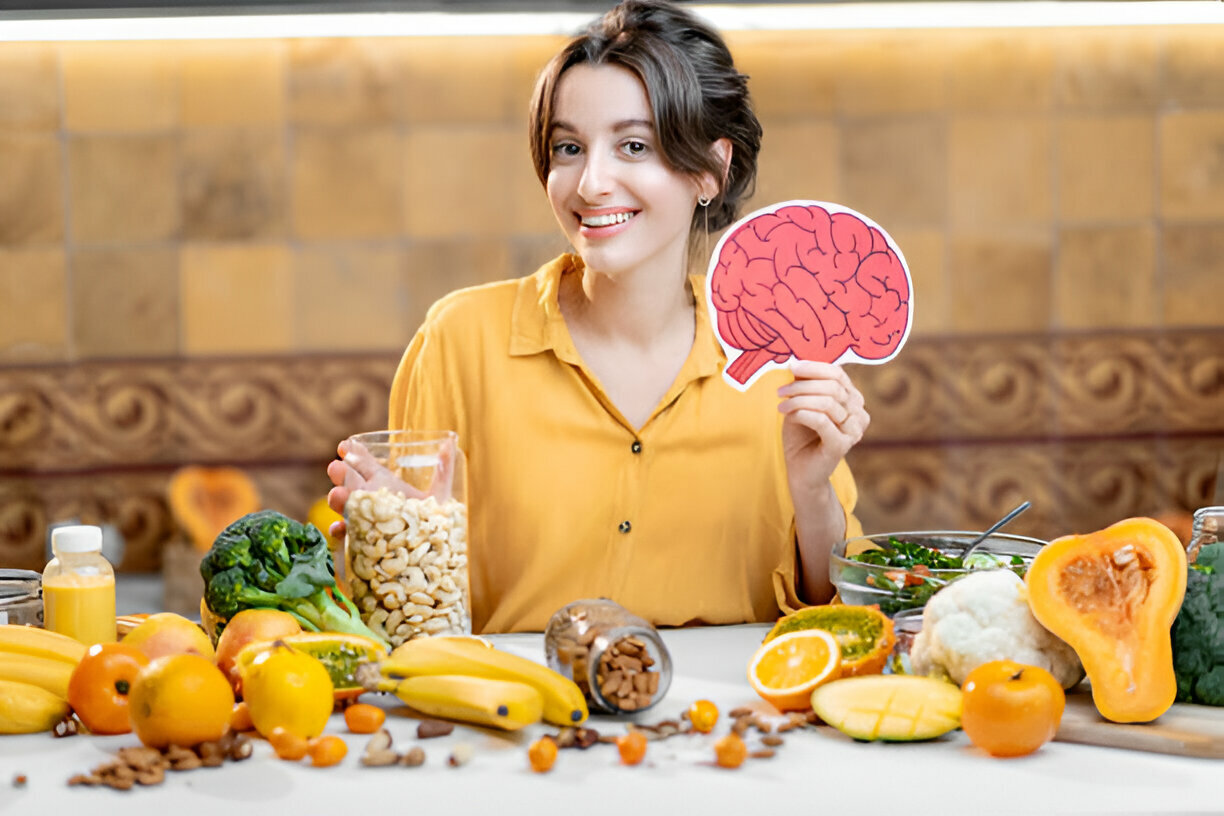-
Brain & Spine Clinic Zobra Canal Road Near SCB Medical college Cuttack
-
SUM Hospital, K8 Kalinga Nagar, Kalinganagar, Bhubaneswar, Odisha
-
srikantswainvss@gmail.com

Nutrition and Brain Health: Foods That Support Healing
When it comes to brain health, medicine and surgery play vital roles, but often overlooked is one of the most powerful healing tools available to us: nutrition. The brain requires a constant supply of nutrients to function, repair, and protect itself, especially after injury, surgery, or the onset of neurological disorders. The right foods can reduce inflammation, support neural regeneration, and even improve cognitive function.
Why Nutrition Matters for Brain Health
The brain consumes nearly 20% of the body’s energy despite making up only 2% of its weight. Neurons and glial cells rely on essential fatty acids, amino acids, vitamins, and minerals for signalling, structure, and repair. Poor nutrition can delay recovery, impair cognition, and worsen conditions like stroke, epilepsy, or neurodegeneration.
Whether you're recovering from a brain injury or surgery, or simply looking to optimise your cognitive health, diet plays a crucial role.
Top Brain-Healing Foods
Here are some science-backed foods that support neurological recovery and brain health:
1. Fatty Fish (Omega-3s)
Salmon, sardines, and mackerel are rich in omega-3 fatty acids like DHA, which help build brain cell membranes and reduce inflammation. Omega-3s have also been shown to support memory and mood.
2. Berries
Blueberries, strawberries, and blackberries contain powerful antioxidants called flavonoids. These compounds reduce oxidative stress, boost communication between brain cells, and may enhance learning and memory.
3. Leafy Greens
Spinach, kale, and broccoli are packed with vitamins A, C, E, and K, along with folate. These nutrients help reduce cognitive decline and protect against stroke-related damage.
4. Nuts and Seeds
Walnuts, almonds, flaxseeds, and chia seeds provide healthy fats, vitamin E, and zinc, all critical for brain cell protection and function.
5. Whole Grains
Oats, quinoa, and brown rice are complex carbohydrates that deliver steady glucose to the brain. They also contain B vitamins, which support energy metabolism and nerve function.
6. Turmeric
This golden spice contains curcumin, which crosses the blood-brain barrier and has potent anti-inflammatory and antioxidant properties. It may support neurogenesis and reduce symptoms of depression.
7. Eggs
Eggs are a rich source of choline, which the brain uses to produce acetylcholine, a neurotransmitter important for memory and learning.
8. Dark Chocolate
In moderation, dark chocolate offers flavonoids and caffeine, which can improve focus, memory, and mood. Look for chocolate with at least 70% cocoa.
Foods to Limit
To support brain healing, it's also important to limit foods that impair cognitive health:
- Refined sugars and processed foods (increase inflammation)
- Trans fats (associated with cognitive decline)
- Excess alcohol (damages brain structure and impairs recovery)
Conclusion
The path to neurological healing isn't just paved in prescriptions—it’s also found on your plate. Whether you’re recovering from neurosurgery or aiming to boost brain performance, prioritising brain-friendly foods can make a meaningful difference.
